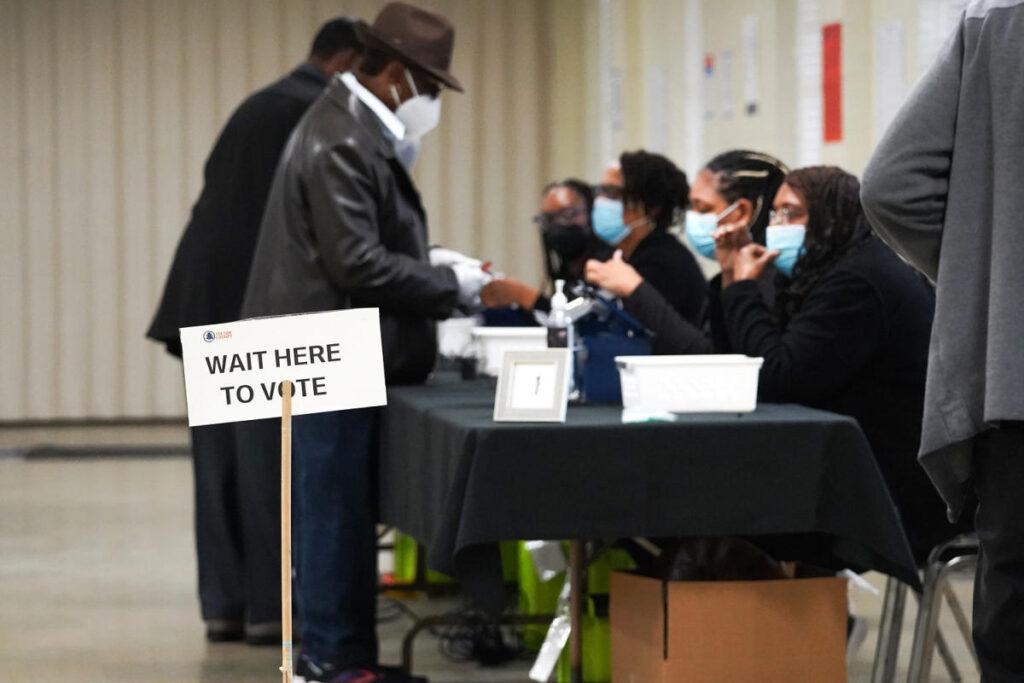As the U.S. approaches Election Day on November 5, nearly 100 lawsuits have proliferated in several pivotal battleground states, significantly influencing the electoral landscape. These legal challenges predominantly arise from Arizona, Georgia, Michigan, Nevada, North Carolina, Pennsylvania, and Wisconsin, reflecting a landscape anxious about the integrity of the voting process. A majority of these suits are initiated by Republicans and affiliated groups, primarily addressing claims of voter fraud, notably surrounding mail-in ballot procedures and noncitizen voting. In contrast, Democratic-led lawsuits aim to expand voter access through extended registration deadlines or broader interpretations of existing voting laws. Experts note that while many Republican lawsuits may not hold up in court, they serve a crucial role in fostering public suspicion about the electoral process, particularly if the election does not favor them.
In the state of Georgia, where President Biden won by a narrow margin in 2020, significant legal activity has emerged. Democratic and voting rights organizations have initiated lawsuits to counter a contentious rule enforced by the GOP-led State Election Board mandating hand-counting of ballots cast on Election Day. Conversely, Republicans have challenged various practices in Fulton County, attempting to revive unfounded concerns about the state’s voting machines. Similarly, in Michigan, the focus has been on the maintenance of voter rolls and procedural practices in Detroit, amidst attempts by Trump allies to create chaos surrounding the electoral process. These lawsuits not only seek immediate impacts on the voting mechanisms but may also set the stage for extended legal battles that follow the election.
Additionally, voting security has become a priority as election officials nationwide are ramping up safety measures at polling places. This includes employing heightened surveillance methods, such as drones and snipers, as well as installing panic buttons for workers. The political climate has led to strategic efforts by local groups, particularly in historically Black neighborhoods, to encourage voter registration, reflecting the intense competition for the support of undecided voters. With the 2024 election on the horizon, both major parties are keen to secure the allegiance of voters who may be torn between their candidates, a group characterized by concerns regarding Trump’s conduct and skepticism toward Harris’ progressive policies.
In tandem with the electoral focus, the IRS has announced new income tax brackets for the coming year, raising income thresholds and standard deductions in response to changing economic conditions. For the tax year 2025, the top tax rate will apply to single filers earning over $625,350 and married couples making over $751,000, with the lowest tax rate set for lower-income earners. These changes, coupled with the impending sunset of previous tax cuts enacted during the Trump administration, signal potential shifts in fiscal policy, especially as Congress will need to act to prevent lapsing tax cuts. Observers are closely watching how tax policy may influence voter sentiment as the elections draw near.
Amidst the political and financial landscape, public health concerns have re-emerged with the reporting of new human cases of avian influenza, or bird flu, in Washington state. Health officials have confirmed four additional cases tied to workers in the poultry industry, raising the total number of human infections in the U.S. to at least 31 over recent months. Although the strain currently does not possess genetic changes that would enable person-to-person transmission, the rising incidence raises alarms about the safety of farmworkers engaging in culling operations in response to outbreaks in poultry populations. Public health advocates are emphasizing the need for protective measures as the agricultural sector grapples with possible health implications.
Lastly, the entertainment world has witnessed social media turmoil following the unexpected passing of singer Liam Payne. In the wake of his death, attention has shifted towards his ex-fiancée, Maya Henry, sparking public backlash stemming from her prior allegations of “abusive” behavior against Payne. While some fans have criticized Henry, many supporters rallied around her, recognizing the complexity of grief and the need to resist scapegoating individuals in moments of tragedy. This reaction encapsulates the emotional strain fans experience following the loss of a public figure while grappling with interpersonal dynamics that often surface in celebrity culture. As discussions surrounding mental health and emotional well-being grow, pop culture continues to reflect broader societal conversations about accountability and compassion.

